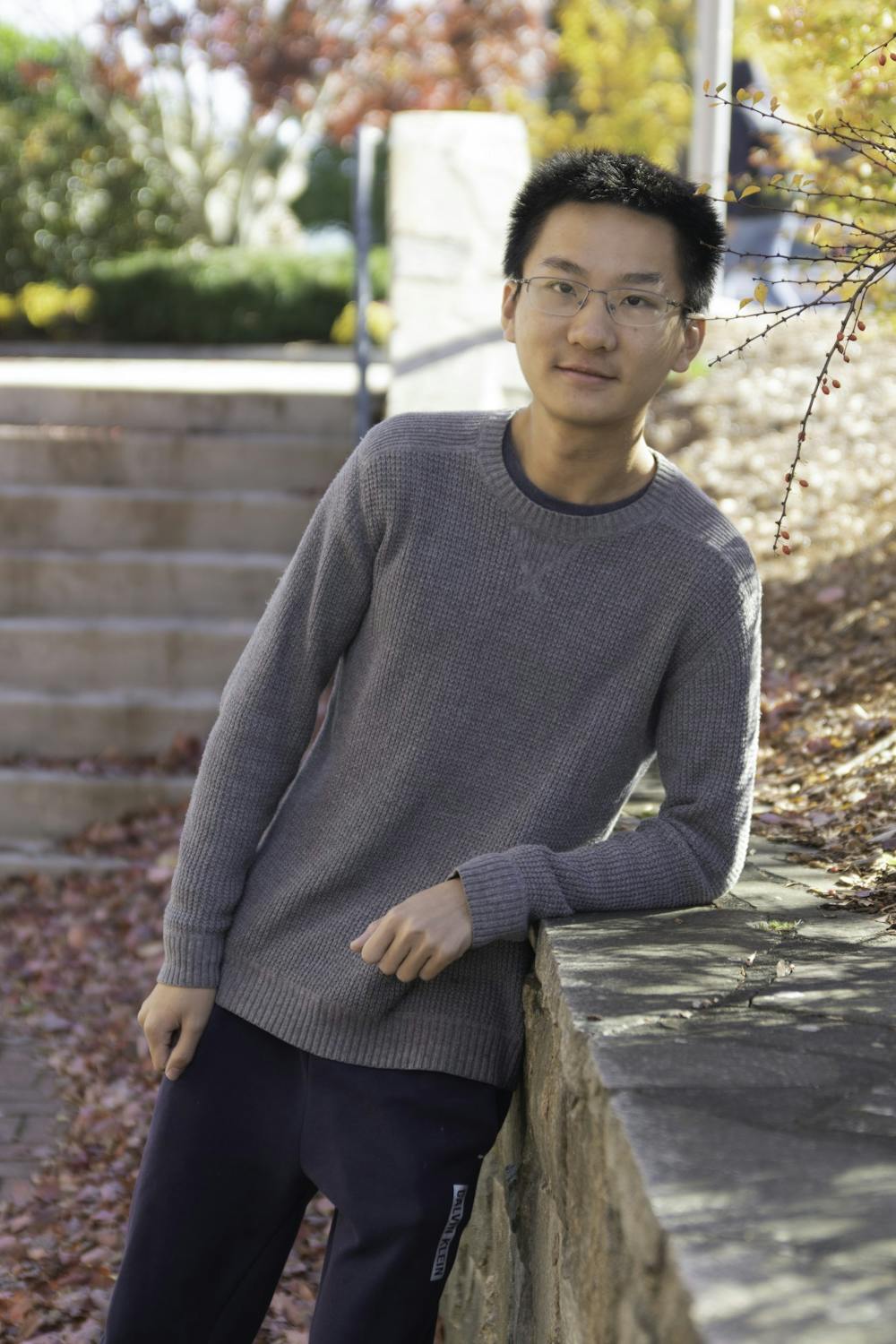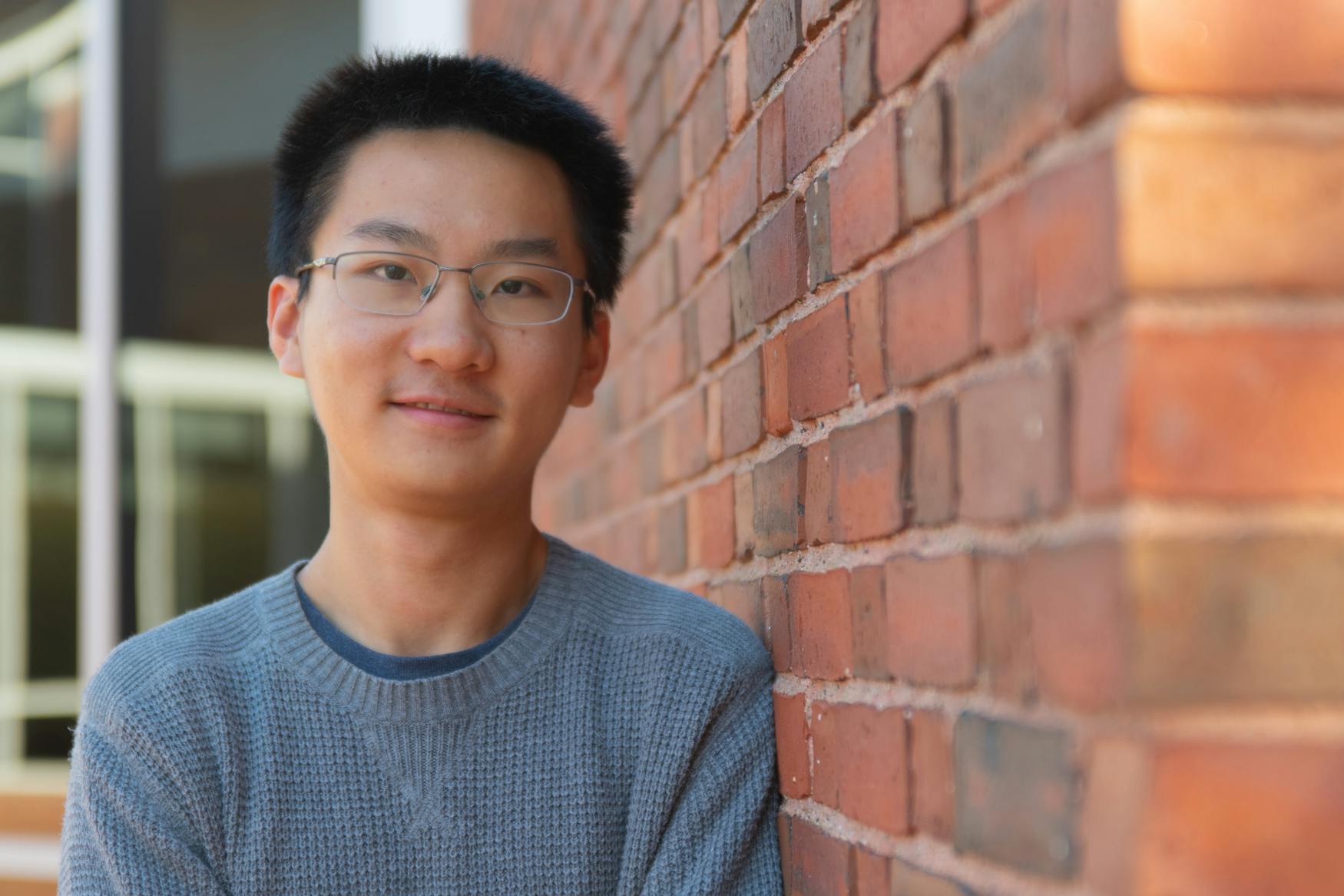Life in a Suitcase: Fish
“Life in a Suitcase” is a series focused on sharing the stories of immigrant students, staff and faculty members at Brandeis, with the hope that it will encourage people to adopt a different perspective on a controversial issue.
Fish Wang ’23, who moved to the United States from China this past June, had been encouraged to study abroad at some point in his academic career. Wang grew up in what he describes as an “atypical Asian family” that gave him a lot of freedom in choosing what to do with his life. Wang’s parents first asked him whether he wanted to study abroad in grade nine, and they decided as a family that he would be completing his higher education outside of China. Wang spoke English and Mandarin, so he looked at universities in English-speaking countries. After much consideration, he decided to attend a school in the United States, a country he perceived to be vibrant, diverse and vivid.
Wang explained that he tried to learn “as much as possible” about life in the United States before arriving at Brandeis. Wang researched different aspects of American culture, telling the Justice that he became more knowledgeable about American politics and its “liberal ideals” by reading news articles and other internet resources. He realized that America is very different, particularly regarding issues of sexuality, from what he was used to in China. Such differences in ideology and culture eventually made him more excited to move here, he said.
Discovering more about what would become his home for a significant portion of his life also eased Wang transition into college. “There wasn’t a huge gap between what I expected and what I experienced,” Wang explained. The one element that has made Wang’s adjustment somewhat difficult is the language. He began learning English in elementary school, as part of the school’s curriculum, but he never found the lessons very helpful. In fact, he attributes 50% of his English skills to his own commitment to learning the language. While his English has improved significantly, he still struggles with “listening, understanding, reading and writing,” which sometimes hinders his academic performance. Wang stated that it’s also been difficult to find a balance between the amount of time he spends practicing his English and the time he spends speaking Mandarin. He realizes that it’s impossible to stay away from Mandarin, given that he has many peers that prefer to use Mandarin. However, Wang said, “If I stick to my Chinese friends for a week, my English will become worse.” Speaking his native language has helped Wang — like many other international students — feel at home by allowing him to connect with individuals that share a similar cultural background. Wag spoke highly of his Chinese friends, saying that they “support [him] when [he’s] feeling overwhelmed, when there are things that [he] can’t understand and when there are things that [he’s] not happy with.” By connecting with them, he has managed to create an extensive support network that has helped him “face difficulties [he] cannot face alone” as he continues to settle into his new life.
Apart from the issues he’s faced with language, Wang’s transition has been smooth. He joked about having some issues understanding the memes his American friends reference during their conversations, but quickly added, “This makes sense because if they go to China and I talk to my friends using a lot of Chinese memes, they won’t understand either.” Wang was also partially surprised at the difficulty of his courses. While he expected college-level courses to be harder than most of the classes he took during high school, the actual workload and difficulty he has encountered this far have surpassed his expectations. Nevertheless, he finds the material challenging in a way that stimulates his interest in a variety of subjects.
As for his plans for the future, Wang intends to stay in the United States for a year after graduation to work or intern in his chosen field of study. After that, he will decide if he wants to go back to China or to graduate school. If he chooses to attend graduate school, he might remain in the U.S. for more time or choose to study abroad in a different country. For now, he will continue to explore different fields of study while keeping in mind his parents’ advice: “Success shouldn’t be the only thing a person should pursue in life.”
When asked about advice he would have given himself a year ago, Wang said: “If you decide you want to go to the U.S. for college, try to read more before you come. The more knowledge you have, the better you can adjust to college life. Remember to do the things you want to do.”

To ease his transition, Wang researched American culture!
Name: Fish Wang
Current position: Member of the Class of 2023
Year of immigration: 2019
Country of origin: China
Languages spoken: Mandarin and English



Please note All comments are eligible for publication in The Justice.